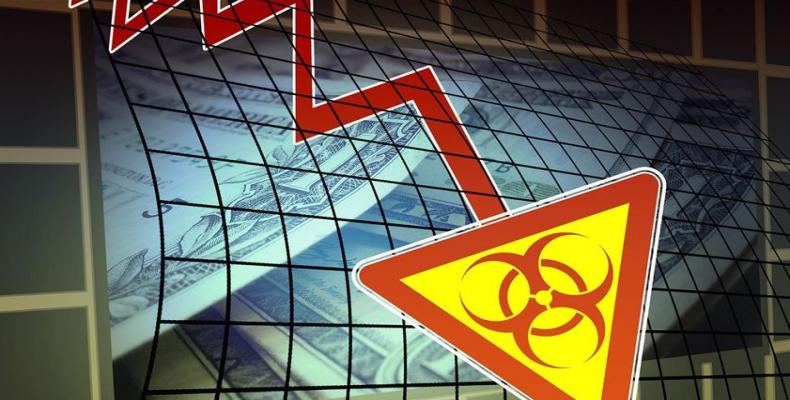More than three months have passed since the World Health Organization (WHO) declared the COVID-19 outbreak a Public Health Emergency of International Concern on Jan. 30, sending the highest level of alarm to the world.
To contain the spread of the virus, many governments ordered lockdowns, travel restrictions and strict social distancing rules, which has led to a drastic slowdown in the real economy, with financial markets witnessing some of the most tumultuous days in history.
As a high level of uncertainty still hangs over the global economic recovery, such an economic downturn can only remind us of the importance of global cooperation and coordination in pulling the world economy back on track.
ECONOMIC RECESSION
As a result of the pandemic, the International Monetary Fund (IMF) recently projected the global economy to contract by 3 percent in 2020, a sharp reverse from a forecast of 3.3-percent expansion in January, adding that the downturn is "much worse than during the 2008-09 financial crisis."
Unlike the crisis over a decade ago, the COVID-19 pandemic first hit the real economy. Measures taken by governments across the world halted economic activity on a large scale, causing slump in both demand and supply, and interrupting global supply chains.
The Institute for Supply Management recently reported that the U.S. Purchasing Managers' Index (PMI) fell by 7.6 percentage points to 41.5 percent in April, the lowest since April 2009.
The aviation and tourist industry bore the brunt of international travel restrictions.
The WHO and the International Civil Aviation Organization jointly estimated a loss of 112 billion to 135 billion U.S. dollars in operating revenues for airlines in the first half of the year.
"We are in the greatest crisis in global aviation and our company," said Stefan Schulte, CEO of Fraport AG, the airport operator.
In many cities and towns, the retail, entertainment and gastronomy and other consumption-related industries suffered greatly from movement restrictions, which further worsened the employment conditions across the world.
According to the International Labor Organization, 81 percent of the global workforce of 3.3 billion has been affected by the coronavirus crisis.
MARKETS TURMOIL
The turmoil in the financial markets worldwide in March and April reflected a great uncertainty surrounding the economic outlook.
In March, the U.S. stock market saw four market circuit breakers in as few as ten days.
The memory of Black Monday in 1987 was renewed after the Dow Jones Industrial Average, which measures the stock performance of 30 large companies listed in the United States, marked a record slump.
However, as many governments rolled out emergency stimulus and central banks moved to improve liquidity conditions, world markets turned bullish again around the end of March.
The coronavirus also caused chaos on the energy market. U.S. oil prices plunged to negative territory on April 20, the first time in history, before rebounding again to normal levels of around 20 dollars per barrel.
In a typical flight into safe havens, gold prices were pushed above 1,700 dollars per ounce at the beginning of April, the highest since 2012.
GLOBAL COOPERATION NEEDED
Roberto Azevedo, director-general of the World Trade Organization, said in late March that a global solution is needed to address the global challenge brought about by the COVID-19 pandemic.
"No country is self-sufficient, no matter how powerful or advanced it may be," he said.
As the second largest economy in the world, China has gradually reopened factories and businesses as the epidemic continued to recede, adding impetus to global economic recovery.
Data from the Chinese statistical authority showed 98.5 percent of China's large and medium-sized enterprises had resumed production as of April 25, up 1.9 percentage points from one month ago.
In most recent weeks, some governments are cautiously devising plans to restore economic activity and social life, trying to strike a balance between saving lives and protecting livelihoods.
The APEC Ministers Responsible for Trade have called for greater cooperation among participating economies to facilitate trade as a way to combat the pandemic.
In a statement, the trade ministers and officials stressed the importance of keeping markets open and working together to ensure a predictable and stable trade and investment environment.
United Nations (UN) Secretary-General Antonio Guterres has said the COVID-19 pandemic is a tragic reminder of how deeply connected the world is.
"The virus knows no borders and is a quintessential global challenge. Combating it requires us to work together as one human family," he said in a message for the International Day of Multilateralism and Diplomacy for Peace.
At this key moment for international cooperation, there is a need for the whole world to strive as one toward a healthy, equitable, peaceful and more sustainable future for all, the UN chief added.
source: xinhua


